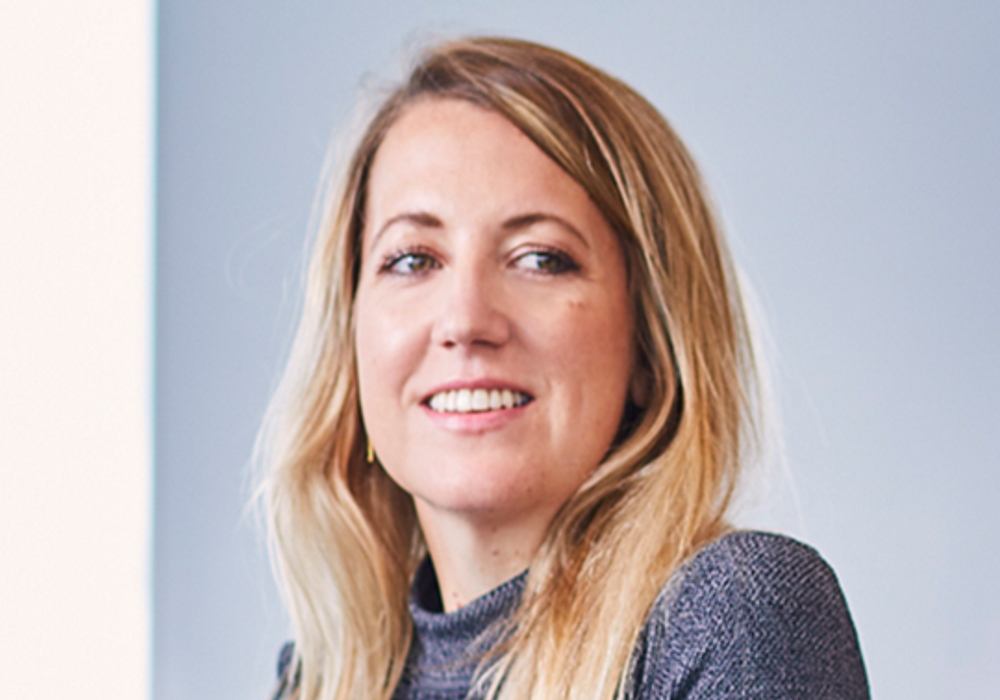Ahead of the Digital Women International Women’s Day (IWD) Lunch 2023, we speak to some of the industry’s leading female voices to get their thoughts on how digital can truly achieve equity. First, we hear from Lucy Cording, Partner & Head of Digital, Kekst CNC.
The theme of IWD 2023 is equity. How far has our industry come in achieving equity for women rather than just equality?
Anyone who knows me, knows that I strongly believe that gender equality cannot just be something we talk about on the 8th of March each year. It’s what we do across the entire year that will make the difference. And it’s not just about gender; it’s about driving equity and equality for all.
I recently read somewhere that, “Equality is the goal, and equity is the means to get there.” If equity is about process, fairness and recognition, to me this really means that we need to surround ourselves with the right information and be prepared to transform how we think and act. As an industry – like many others – we can do better.
What are you most impressed by in how your own company is making efforts to achieve equity?
A few years ago, we acknowledged that if we were to really succeed in being a more diverse and inclusive organisation and employer, we needed to reflect on our own behaviours. We were honest with ourselves that yes, we could set targets and introduce or refresh policies, but first we needed to unpick the parameters within our culture, how we hire, how we interview and how we talk to each other. We’ve taken responsibility and driven holistic accountability to address these areas openly.
We’ve created an empowered DEI steering group representative of our global offices and workforce. This group helps us reflect, review and effect change. More recently, we kick-started important conversations with external experts, academics, and thought leaders as part of a DEI Advisory Network, because we feel that to get better, we need to learn from others. That’s our continued goal for 2023 and beyond.
What will be the biggest challenge in achieving equity in the digital industry?
Unfortunately, the biggest challenge may very well come down to education. I am not just talking about academic education found within STEM (although this is a continued challenge in the digital industry, and has been for a number of years), but also the presence of the right training and knowledge amongst existing communities and leaders within the industry. There of course are pockets of people who look to educate themselves and each other, but is this consistent across the board? Perhaps not.
Importantly, I don’t believe this is a challenge limited to just the digital industry,
I believe that anyone in any industry has the opportunity to empower and to challenge themselves to be more informed and educated on what is needed to achieve equity. Only then will we see improvements.
Are you worried that macroeconomic issues could have a negative impact on diversity initiatives in our industry?
Of course. It would be naive to think that an ambition as vulnerable as achieving genuine diversity, equity and inclusion would not be at risk during a period as volatile and uncertain as the one we currently find ourselves in. When uncertainty drives other priorities, progress on diversity can suffer, whether this pertains to investment in training or recruitment, how we network with each other, or how we challenge and celebrate change.
There is hope that pressures towards achieving equity remain strong and at the top of people’s agendas, especially within the industry and within business.
What is your advice to anyone in a junior position who wants to engender change within their own organisation?
Honestly, I think it’s the other way round. We can (and should) learn from our junior colleagues: I’m always looking for the opinions of those who find themselves in the early stages of their careers, as they are likely to be the people who are leading real change. I see it as my responsibility to learn from them, and then help initiate the changes needed to drive progress. My values, my views and my decisions are often best informed, if not best led, by what I see, hear and learn from people younger than me! It’s often the mistake to think we can only learn from those more senior than us.
What is the biggest opportunity for women in your sector of the digital industry today?
The biggest opportunities come when women support one another. Too often, we see women pitted against each other, whether it’s in the media, politics, society or in films and television programmes. It happens all the time – it’s toxic, and it needs to stop.
With today’s access to technology, online communities, support networks and information flow, there really is no excuse not to be aware of the individual and collective achievements of other women.
I encourage those who want to contribute towards DEI progress to seek support from their peers, their colleagues, their bosses, their friends. In fact, we should work together, regardless of our gender, if we want to champion change.
What is the biggest challenge to you as a woman in the digital industry and how are you overcoming it?
As women, we are surrounded by challenges but also, by opportunities. I think it is extremely important to recognise that. We should be leaning into those opportunities for collaboration, female empowerment, and networking wherever we can.
In terms of a personal challenge? I am currently in the early months of maternity leave following the birth of my incredible daughter in December. Becoming a mother and going on leave from work are both equally very daunting things for me! I joke about the fact that in life we have FOMO, but currently I am juggling the fear of not being missed!
The reality is that a big challenge faced by women every day is how we navigate family life (whatever that looks like), motherhood, responsibilities, and a career. This often emotional and guilt-ridden challenge is real, and it’s scary, and there is no perfect solution to manage it.
What three things could employer companies do to make the digital industry better for women?
I believe these three things should be the guiding principles in any industry and within any organisation. Every employer, but also every individual has a responsibility to:
- Educate – information is power, and to be informed can be inspiring. Every individual has a responsibility to learn and to evolve, especially when it comes to such a multifaceted and nuanced topic as gender equality and equity. This is especially important for business leaders.
- Challenge – whether it’s to challenge the environment you work in, calling out certain behaviours, or challenging your colleagues to think differently. Change is more likely to happen when a conversation is had.
- Celebrate – we shouldn’t just be focused on about “calling out” certain behaviours. We should remember to pause and to celebrate change and progress. I am also a fan of celebrating other women – its important and healthy to do!
What support structures and organisations are most important and effective to you as a woman in the digital industry?
There are lots of great networks and communities set up to share information and to encourage the right conversations. Luckily, gone are the days where female-only networks meant coming together just to drink prosecco and discuss office wardrobes. Such networks and initiatives began to get a bad rep about 10 years ago, and the industry saw a decline in interest and enthusiasm to participate. I think we have seen a sensible refresh of networking, perhaps as an outcome following the pandemic, but perhaps also because women were reminded of what can be achieved through collaborative thinking.
I think businesses, especially larger organisations, have become better at recognising as well that sometimes there is a need for official structures to be put into place. For example, I’ve seen great success come from reverse mentoring programmes, as well as official moments carved into busy work schedules, and town halls for leaders to listen and to learn.
What is the biggest misconception about women and by women in the digital industry?
Historically, I think it’s been to do with the role women can play in digital transformation, technology and leadership. I think we have made steps in the right direction towards addressing the misconception that women can’t drive change or can’t lead innovative tech start-ups. There are lots of notable women leading transformation and transformative businesses, and they continue to inspire others to do the same.
Today, I think the biggest misconceptions lie within digital disruption, and specifically people’s ability to drive that disruption. Similarly, with the historic misconception that women can’t drive digital transformation, we rarely hear examples of women disrupting the industry and are surrounded by the stories of Musk and Bezos leading the way.







